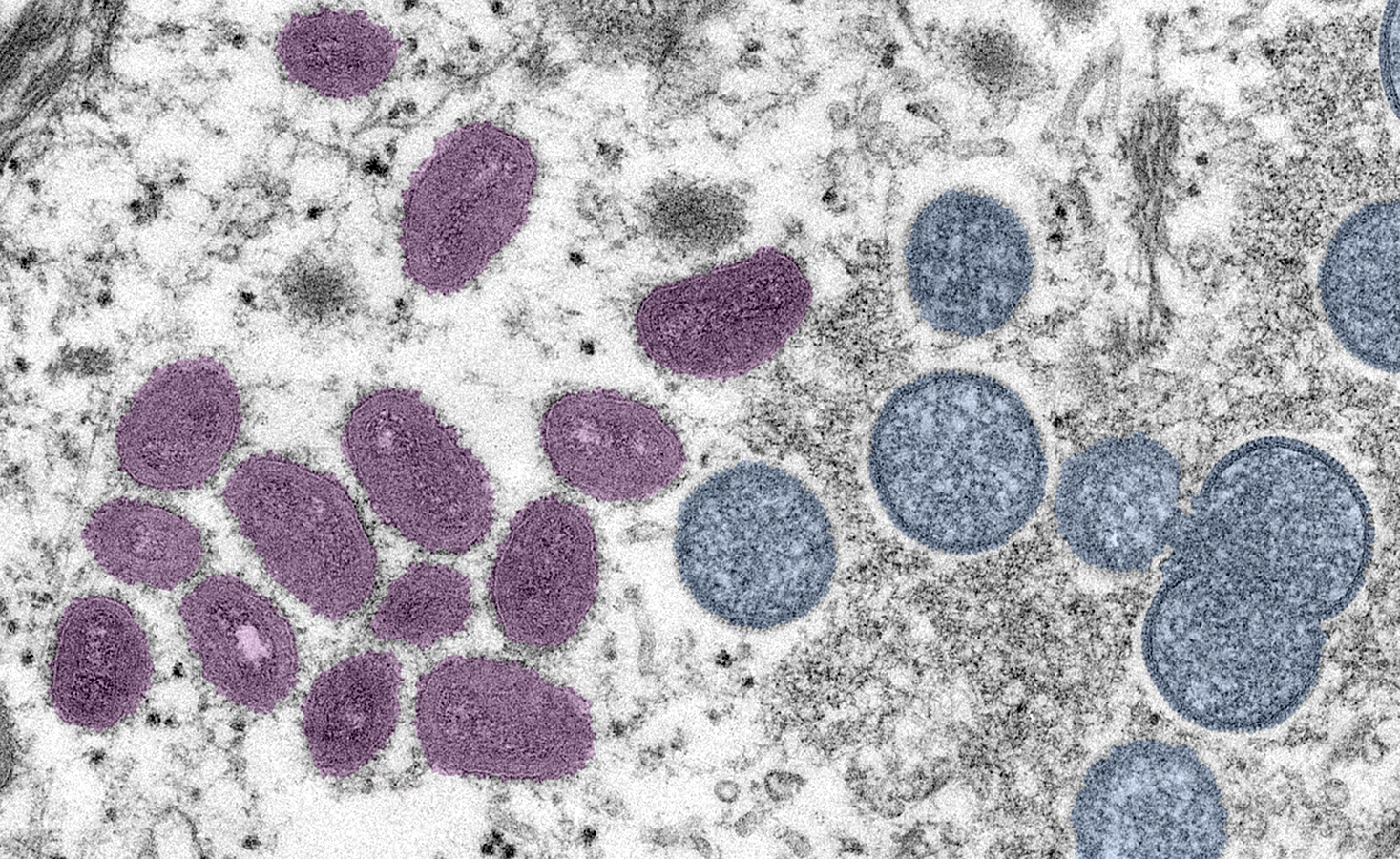The recent news came out with the first suspect human-to-dog transmission of monkeypox noted in France. Two men living together acquired monkeypox after having intimate relations with others. Their 4-year-old Italian Greyhound likely acquired monkeypox through sleeping in bed with his owners. Twelve days after the owners developed symptoms, the dog developed skin lesions, and later tested positive for monkeypox. The dog has since recovered and is doing well.
What animals can get Monkeypox?
Monkeypox is not a new disease and has been known to occur in wild animals in West and Central Africa. And in 2003 a monkeypox outbreak affected domesticated prairie dogs and people in the U.S. after an infected shipment of animals came from Africa.
Although researchers are still learning which animals can get infected, technically any mammal could get either monkeypox, or other viruses in the group called Orthopoxviruses. Mammals that could acquire the virus include but aren’t limited to squirrels, prairie dogs, dogs, hedgehogs, monkeys, and possibly rats/mice.
How is monkeypox spread from people to animals?
The virus is primarily spread through close physical contact through skin-to-skin contact of skin lesions or body fluids. The virus can also spread through respiratory droplets. Close physical contact could occur between people and pets through typical pet contact like hugging, cuddling, petting, kissing, sleeping with pets and sharing food.
What symptoms do animals get with monkeypox?
Symptoms include a rash, but may also consist of coughing, conjunctivitis, nasal discharge, lethargy, bloating, fever, and labored breathing.
What should pet owners do?
The first thing is not to panic, this is an isolated case of human to dog transmission. There is no reason to euthanize or give up your household pets. The CDC discourages spraying or wiping your pet with any disinfectants, hand-sanitizers or other chemicals. This will be unlikely to prevent transmission and could harm your pet.
For people with a possible exposure or known infection of monkeypox, seek prompt medical care and avoid any close contact with all pets in the home.
If an owner is in quarantine with a suspect exposure or positive test, but the pet DID NOT have close contact, then the pet could temporarily stay with a friend or family member outside the home until the owner fully recovers. Fully disinfect the home before the pet returns to the environment.
But, if the pet ALREADY HAD close contact with the exposed/sick human, then do not send the pet out of the home. Keep the pet away from other people and animals for 21 days. Ideally have another resident of the home care for the pet during this time. If that isn’t possible then the exposed/sick human should limit exposure to the pet by washing hands often, keeping their rash covered with clothes at all times, and wearing gloves and a well-fitting mask when caring for pets. Additionally keep used clothing, towels, and bedding out of pet’s contact.
What do I do if my pet develops symptoms?
Since there are many causes of skin rashes and similar symptoms in pets, do not rush to judgement. In order to be considered a pet monkeypox concern, there must be both a history of possible exposure, and symptoms that support monkeypox infection.
#1 Historical exposure: Within 21 days of the pet developing symptoms, the pet must have had close contact with a confirmed or probable human or animal case of monkeypox.
#2 Clinical Illness: To be considered a suspect case, the pet must either have developed pustules, a blister-like rash OR exhibit any 2 of the following symptoms.
Decrease appetite Lethargy
Coughing Bloating
Crusted, runny nose Fever
Conjunctivitis Labored breathing
If those criteria are met, then veterinarians would consult with public health and state veterinarians to pursue testing.
It is always wise to be informed when it comes to zoonotic diseases (diseases passed between people and animals). But remember, the good news is that monkeypox is an unlikely risk for your pet.
Consult with your veterinarian directly about any of your pet’s individual health or preventative care needs. For more information on Monkeypox and Pets visit the CDC website Monkeypox and Pets
Photo credit: Cynthia S. Goldsmith, Russell Regnery, CDC Public Health Image Library

